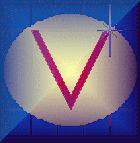
Games
42
RPGS
55
Arcade Games
34
Puzzle Games
18
Platform Games
10
Strategy Games
Sections
QB
News
Site
Archives
Game
Guides
Our
Projects
Entertainment
Awards
Page
QB
Links Page
Interact
Discussion
Board
The
QB Chatroom
Mailing
List
Submissions
Link
to Us
Job
Openings
Email
VPlanet!
Affiliates
The
QB Times
Future
Software
Abyssware
Studios
Clockwerk
Productions
Darkside
Productions
Game
Developer's Refuge
GBGames
QBasic
Master
Creating
NeoBasic
Pete's
QBasic Site
Pickers
Games Website
Programming
Oasis
Programming
ShareHouse
QB:
Cult Magazine
QB
on Acid
QB:
The Magazine (Archives)
QBasic/QuickBasic
News
QuickBasic
RPGs
Secret
Weapon Software
Sneukeule's
QBRPG Page
StattoNet
Disclaimer
The
software reviewed and/or downloadable in this site, along with any related
images presented or concepts related to the software, belongs to its respective
people, companies, and development teams. All downloadable titles in this
site are "freeware", and the source of each software is clearly stated.
The opinions presented regarding such software does not reflect the views
of its creators; the intention of this site is to inform and pay tribute
to the many programmers who have chosen QuickBasic 4.5.
Any additional images and/or news gathered to this site from another source belongs to its respective owners, and is intended to advertise the source and promote its theme.
If
you have any problems concerning the contents of this site, please contact
our staff at
vancevelez@yahoo.com.
The first 100% QuickBasic game Review magazine
In Search of the Right Speed
(3/25/2001) PCs will always get faster and faster. So why aren't QB game developers making sure that their games will work for generations to come?
 Back
in the early days of QB programming, it was considered a triumph for a
programmer to make the game as fast as possible. This required cutting
down on the amount of needed code enough so that the game loops faster,
the gameplay is more precise, and the fun factor is, well, more fun!
Back
in the early days of QB programming, it was considered a triumph for a
programmer to make the game as fast as possible. This required cutting
down on the amount of needed code enough so that the game loops faster,
the gameplay is more precise, and the fun factor is, well, more fun!
Unfortunately, with the speed of this year's computer technology, which passes QuickBasic by almost a decade, comes with a whole new problem for QB games. As QB games of the past sometime run too slow on older PC models, many of the QB games made in the past have a new problem when played on newer computers: they run too fast. In it's worst case scenario, the lack of addressing speed issues can make enemies zip across the screen over thirty times a second, create situations that are impossible to play, and cause real-time computer AI to be so quick that you're hit to death before you even move an inch.
And so a new problem is born; but it has to be dealt with in a different way than the other speed issue. To make a game as fast as possible, the code has to be refined and shortened to make sure that every unnecessary line of code is taken out. But to make a game work at the same speed at all times requires putting delays that will adjust itself according to the speed of the computer. There are many ways to do this, of course. You could try an empty FOR/LOOP structure whose only purpose is to delay the game slightly. Also, if you're using a QB library, you can adjust frameskip values and so forth. There are many ways to handle this problem (and since V Planet is more of a gamer's magazine I hope a QB programming online magazine like QB Cult Magazine addresses this issue in the future =)
It's probably best that you make your own timing routine depending on your game. Then, make sure you have a bunch of testers who can try your game out and give feedback (the game's too fast; the game's too slow, etc.) After getting feedback from the public through your test runs, you should be able to release a version of the game to the public where the speed settings adjust themselves. But even then, should gamers dislike the speed settings as set by the computer, there should be an in-game menu that allows you to adjust gamespeed. The QBRPG Mysterious Song and StattoPong are good examples of this.
You can't really blame the programmers of QB's past for not addressing such speed issues. At the time, nobody really knew that the Internet would mainstream and that the use of QuickBasic would be for so long in the first place. But as the current generation of QB programmers, we are aware of these changes. Let computers upgrade any way they want, but as programmers let's make sure that our games are playable like we remembered it for generations to come.
Vance Velez
Editor, V Planet! QuickBasic Magazine